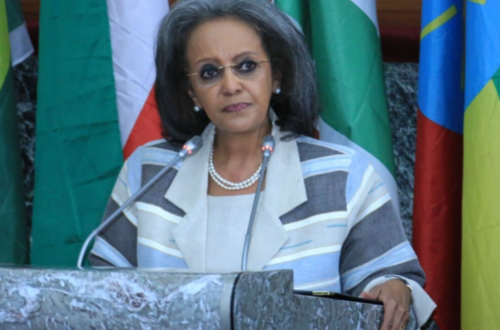
8 Unfavorable Changes Under Trump and Their Impact on Nigerians

During Donald Trump’s presidency, several policies and changes were expected to have far-reaching consequences, both in the U.S. and globally.
These shifts might have been particularly impactful for countries like Nigeria.
Below are 8 unpleasant changes that were anticipated during his reign and how they could have affected Nigerians:
1. Tighter Immigration Policies
Trump’s administration implemented strict immigration policies, including the “Muslim Ban,” travel restrictions, and increased scrutiny of visa applications. Nigerians looking to migrate to the U.S. for education, work, or family reunification could face more hurdles in securing visas or residency.
2. Cutbacks in Foreign Aid
Trump proposed cuts to foreign aid budgets, including for programs in Africa. This could have led to reduced U.S. financial support for development programs, health initiatives (like those combating HIV/AIDS), and humanitarian efforts in Nigeria and across the continent.
3. Trade Restrictions
Trump’s “America First” approach led to the imposition of tariffs and the withdrawal from international trade agreements. This could have disrupted Nigeria’s trade relationships with the U.S., particularly in areas like oil exports, agriculture, and manufacturing.
4. Environmental Policy Rollbacks
Trump’s rollback of environmental regulations, including those related to climate change, could have exacerbated global environmental challenges. As a country that faces significant environmental issues, including deforestation and flooding, Nigeria might have been impacted by global inaction on climate change.
5. Strained U.S.-Africa Relations
Trump’s presidency saw a decline in diplomatic engagement with African nations. His “shithole countries” comment about African nations, including Nigeria, created tension and worsened U.S.-Africa relations. This could have affected Nigerian diplomatic, trade, and economic ties with the U.S.
6. Health Policy Cuts
Trump’s efforts to reduce funding for global health initiatives, including the Global Health Fund, could have affected programs like malaria, polio eradication, and HIV/AIDS treatment that directly benefit Nigerians. With health programs being underfunded, Nigeria could see fewer resources for combating these diseases.
7. Reduced Support for Refugees and Asylum Seekers
Trump’s policies aimed to limit the number of refugees and asylum seekers admitted to the U.S., including those from Africa. Nigerians fleeing violence, persecution, or economic hardship could find it more difficult to seek refuge in the U.S., forcing them to seek other destinations.
8. Discrimination Against African-Americans and Immigrants
Trump’s rhetoric and policies often fueled racial tensions, especially with African-Americans and immigrant communities. Nigerians, particularly those living in the U.S., might have faced increased discrimination or hostility, especially during moments of national unrest.
While these changes were anticipated, they ultimately had far-reaching consequences on various countries, including Nigeria. Many of these issues were part of broader global shifts that affected Nigerian citizens, immigrants, and policymakers seeking to maintain positive relations with the U.S. during Trump’s time in office.




